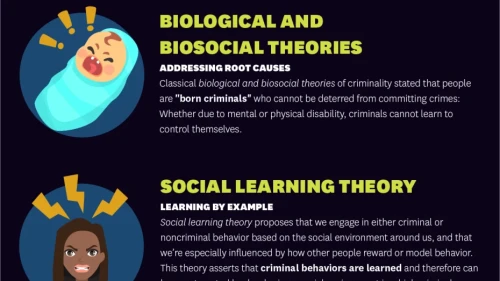The growing field of geographic information systems (GIS) has opened up a range of career possibilities for people who are fascinated with data and who want a fulfilling career that addresses pressing real-world problems, and this includes GIS analysts.
As the name indicates, GIS is the use of information about geographical features to solve problems. Information is gathered and stored in databases that must be maintained by experienced professionals. Modern technology makes it easier to capture massive quantities of data, but actually putting that data to use requires human ingenuity. That’s where GIS analysts come in.
The information contained in these databases can have many practical uses, including urban planning or wildlife management. GIS analysts are keepers of the data, but they’re also responsible for turning it into something that can be used by their colleagues, professionals in their particular field, or even the general public.
What Do GIS Analysts Do?
GIS analysts can put their skills to work in a number of different areas, whether they are assisting in urban environments, helping with environmental protection, or contributing to military intelligence.
Regardless of where they work, GIS analysts may:
- Produce maps for the general public and for field use1
- Use data capture/digitization to convert paper maps to usable GIS data sets2
- Format GIS information to be clearly shared in presentations and reports2
- Maintain a geographical library of maps and geographical information2
- Assess current GIS methods to find other uses or to improve application2
- Analyze GIS information and identify patterns in the data2
- Go into the field to ensure that stored data is accurate1
- Develop new user-friendly apps and tools that can convey information to a lay audience2
- Improve processes with specialized programming in languages such as Python, SQL, JavaScript, C++, Visual Basic and Java1
Traits of Successful GIS Analysts
Working as a GIS analyst can be a challenging career, and it helps to have a specialized academic background as well as personal strengths such as strong collaboration and communication skills.2 GIS analysts utilize powerful technological programs and work with databases, so it’s necessary for them to be comfortable working with technology. Analysts must also be detail-oriented and be able to see patterns and communicate results clearly. It’s an excellent career for those who thrive in situations with changing responsibilities and who enjoy new and different challenges on a daily basis.1
Aspiring GIS analysts should be able to demonstrate:2
- Analytical thinking
- Strong computer skills
- Excellent written and verbal communication
- Solid background in mathematics and statistics
- Troubleshooting and problem-solving
- Great visualization skills3
- Ability to work well with a team
How to Become a GIS Analyst
Being a GIS analyst requires a combination of technical skills (including knowledge of database maintenance, changing technology and relevant tools) and the right approach to problem-solving. While it is possible to gain the necessary skills on your own to pursue a career in the field, it makes more sense to focus your education on GIS and branch out secondarily into other specializations based on your particular interests.
It may be helpful to follow this general GIS analyst career path:
- Consider earning a bachelor’s degree in a related field. This can include computer science, engineering or geography.2 Other good degree choices (depending on what field you want to pursue as a GIS analyst) include urban planning, environmental science, forestry and resource management.3
- Consider taking art classes to improve your visualization skills and help you design better maps.3
- Complete an internship with a nonprofit organization or government agency so that you can gain firsthand experience with GIS software and databases.3
- Build professional experience. GIS analysts can find careers in many different companies, such as risk management firms, military contractors or media conglomerates. It just depends on what specific job role interests you.3
- Get certified. Prove your expertise to employers by pursuing additional professional certification. The GIS Certification Institute offers a GIS Professional (GISP) certificate,2 and the American Society for Photogrammetry and Remote Sensing (ASPRS) also offers certificates for mapping scientists and GIS technologists.3
- Progress in your career with a master’s degree. Some positions, especially those with additional responsibility and/or more complicated technical expertise, require applicants to have advanced degrees. A master’s degree is often necessary to advance upward into a project management role.1
- Keep learning. Because GIS is such a technology-based field, it’s constantly changing. Be prepared to work hard and stay on top of the latest technological developments throughout your career as a GIS analyst.4
A master’s degree in GIS will prepare you for more advanced positions with more demanding technical requirements, whether you already have a background in GIS or are looking to make a career change. Kent State University’s online Master of Geographic Information Science (GISc) is a flexible program that allows you to choose from coursework in Cyber GISc, Environmental GISc, and Health & GISc. . If you want to have a long-lasting, fulfilling career as a GIS analyst, Kent State’s GISc program will give you the skills you need to succeed.
Sources:
- Retrieved on November 19, 2019, from gisgeography.com/gis-analyst-job-profile/
- Retrieved on November 19, 2019, from jobhero.com/gis-analyst-job-description/
- Retrieved on November 19, 2019, from study.com/articles/Become_a_Geographic_Information_Systems_Analyst_Career_Guide.html
- Retrieved on November 19, 2019, from zippia.com/gis-analyst-jobs/





